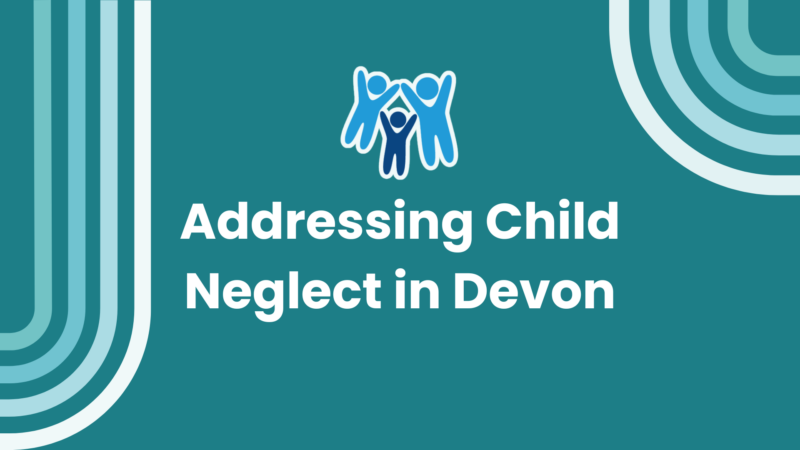Addressing Child Neglect in Devon

In recent months there have been three rapid reviews in Devon that have brought to light critical issues surrounding child neglect. These cases underscore the importance of vigilance, multi-agency collaboration, and proactive intervention to safeguard vulnerable children.
Below is an overview of the initial findings and learning from these three reviews. Please be aware that a separate learning brief will be published once we have finished the review process.
Please also be aware that we have separately been conducting a thematic review into neglect. The findings from this will be published by the end of October.
Common Themes and Patterns
- Chronic neglect was evident in all cases, with children suffering from poor hygiene, inadequate living conditions, and unmet medical and educational needs.
- Parents consistently failed to engage with support services, often preventing professionals from entering the home or following through with recommended actions.
- Significant health and safety issues, such as untreated medical conditions, poor living environments, and lack of immunisations, were common.
- Each case required the involvement of social services, health services, and law enforcement to address complex needs and risks.
- Early intervention was often missed due to lack of information sharing, reliance on parental consent, or failure to fully assess living conditions.
- Domestic abuse affected family dynamics, contributing to neglect and instability. Instances of strong safeguarding curiosity and persistence by professionals eventually led to the identification and addressing of neglect.
Examples of Good Practice
- Professional curiosity and persistence were demonstrated by various professionals, including an Education Welfare Officer who contacted medical services, and primary school staff who showed high levels of pastoral support.
- Hospital staff displayed strong safeguarding curiosity and persistent follow-up, while the Fire Service persisted with the fire safety review and raised concerns.
- Effective multi-agency collaboration was evident in the Front Door process, which required an assessment after three or more contacts within 12 months, and in the SWAST referral to Front Door and Fore Service, which identified neglectful living conditions.
- The Front Door’s policy review of repeat contacts within 12 months also prevented ongoing neglect.
- Supportive school interventions included providing clean clothes and showering facilities and improving attendance with steps like breakfast clubs.
- Clear professional challenge and self-reflection were shown in child in need meetings and by schools recognising areas for improvement.
- Prompt and proactive actions were taken by social work teams attempting home visits and children’s services implementing a process requiring social workers to seek supervision when families decline engagement.
Areas for Improvement
- There is a need to improve professional curiosity across agencies and address barriers.
- Enhancing information sharing and developing comprehensive chronologies are crucial.
- Clarifying consent policies to facilitate effective multi-agency work is necessary.
- Emphasising the importance of home visits for observing and reporting safeguarding concerns is vital.
- Decision-making should include seeking other agency information and analysing parental motivation for Early Help offers.
- Strengthening guidance for disproportionate requests and ensuring necessary responses in health settings is important.
- Including relevant information from all agencies to inform decision-making is essential.
- These reviews highlight the critical need for effective multi-agency collaboration, early intervention, and maintaining professional curiosity to safeguard children at risk of neglect.
- By learning from these cases, we can improve our practices and better protect vulnerable children in our communities.
Next steps
- The three Rapid Reviews met the criteria for full Local Child Safeguarding Practice Reviews and partners have agreed to commence with a piece of multi-agency review work incorporating all three.
- A multi-agency Neglect Task and Finish Sub-Group has been stood up to review the Devon Neglect Strategy and Toolkit.
- The Quality Assurance Workforce Delivery Group will share the findings from their deep dive thematic review into neglect in Autumn.
- There will be a number of Best Practice Events in 2025 to help us all share the learning and consider our practice.
- A Learning Briefing will be published on our website.